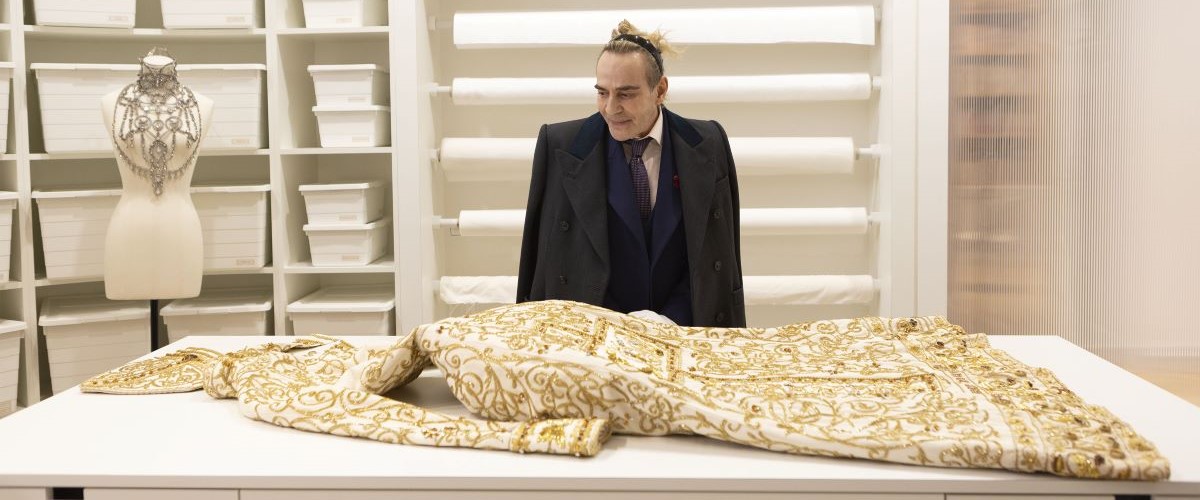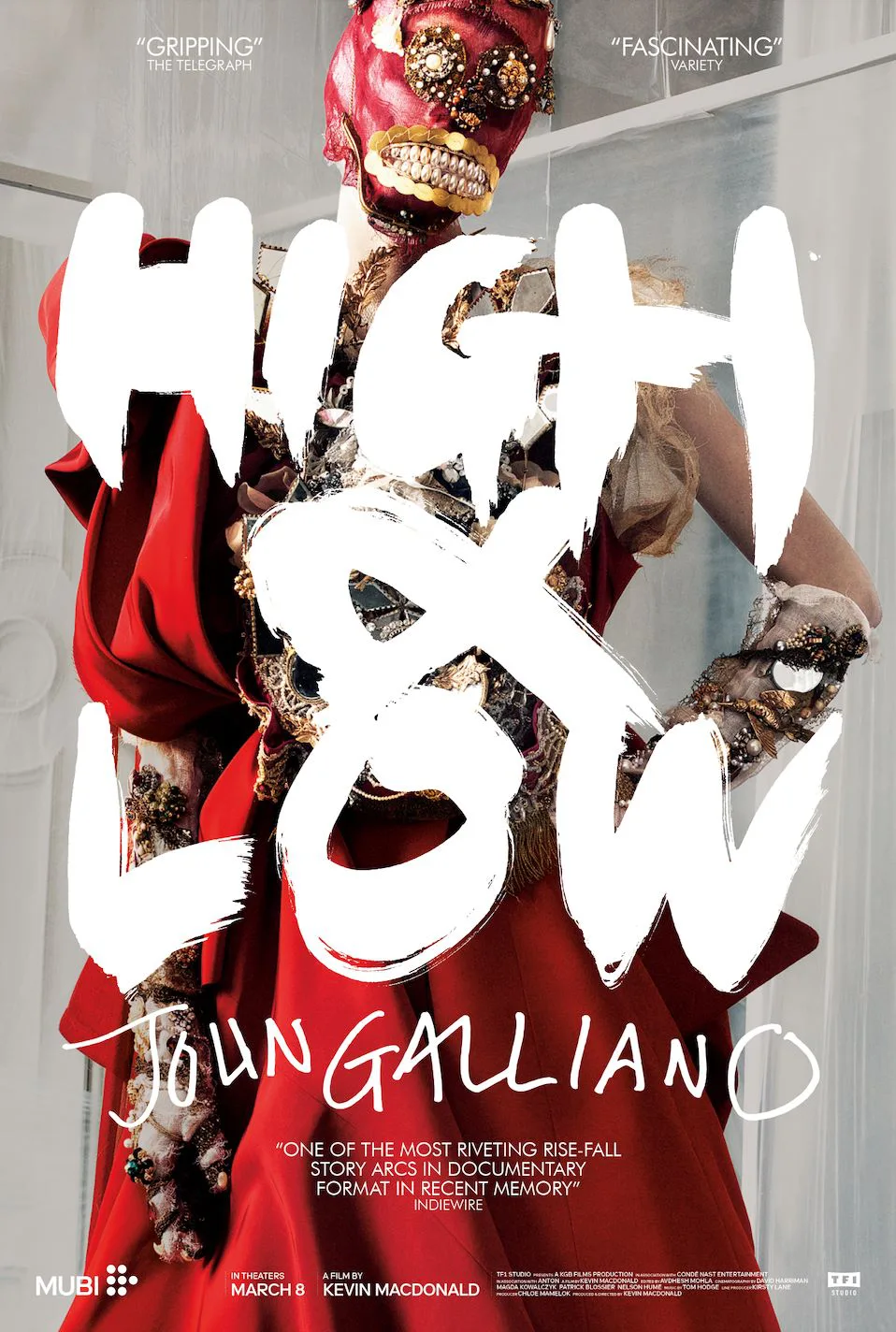I have never been afraid to write a review, let alone give it a rating, but the documentary "High and Low - John Galliano" by Academy Award-winning director Kevin Macdonald took me for a spin. Even after watching "America's Next Top Model" throughout my entire adolescence, I had not wrapped my head around the fact that the fashion industry can be so wicked. "High and Low" is the story of antisemite, culture-vulture-designer, and recovering alcoholic John Galliano and his boss and enabler, the near-trillionaire Bernard Arnault (CEO LVMH Moët Hennessy Louis Vuitton). The cynicism and moral failings are alarming, presented clearly by director Kevin Macdonald.
It is a life story of exploitation. John Galliano, a son of a plumber, turned pawn of billionaire Bernard Arnault, is used to further the celebratory narrative of high fashion. Macdonald does not shy away from the harm; he introduces it in the first scene. Galliano states, "I love Hitler," and then proceeds to with antisemitic comments to a cafegoer. These incidents by Galliano occur three times in Cafe La Perle in Paris, France. Although he is a bigot and an addict, Galliano receives continuing praise from fashion celebrities such as Naomi Campbell, Edward Enninful, Anna Wintour, the late André Tally and Kate Moss. Enabled throughout a life riddled with alcoholism, his drive was supported by those unaffected by his illness. The documentary ends with Galliano climbing up a flight of stairs, to show that even with his racist comments and laundry list of other issues, he still made it to the top. Although Galliano has headed artistic direction for brands such as Dior, Givenchy, and now Maison Margiela, it is billionaire Bernaud Arnault who reaped the financial rewards.
John Galliano seeks forgiveness and top executives search high and low for his comments to be validated and forgiven by SOMEBODY. Whether he gets it or not, it does not matter the heads of the fashion industry because it thrives off of toxic perceptions of the world. Anything and anyone are up for grabs; there is no moral code, except if you are a Black person, like Kanye West, dropped from top labels, considered irredeemable, not excused by his illness. Galliano, however, is excused. Anna Wintour says Galliano's racist comments are unlike his true character. That is just his alcoholism. Bernard Arnault, who leads both alcohol and fashion empires, is in the business of making alcoholism a mask for inhumanity. Racism, poverty-fodder, cultural theft and the pillage of history are the bacteria in which fashion grows in a petri dish and sells.
Illustrated and juxtaposed with the 1927 "Napoleon" film by Abel Gance, director Kevin Macdonald captures Galliano as vulnerable and Napoleonic as he recalls his life in the fashion industry. Galliano is described as an escape artist. His story centers on the need to escape his abusive father and then finding fashion. From a suburban British boy to an unstoppable, highly-protected fashion icon found responsible by a court for antisemitic behavior, the story is almost cliche. People deserve protection through illness and growth processes, but what distinguishes celebrities like Kanye West from John Galliano? White superiority complexes fueled by capitalistic and sadistic system heads like Arnault.
Kevin Macdonald captures the injustice, the unwavering protection from elites, and the essence of who John Galliano is. Although Galliano thought his dreams would not be realized, they have been repeated over and over again and he undoubtedly merits being called the "vainest man in fashion."
The fashion industry has done a fine job in feeding a Galliano ego trip and a system of exploitation, which deserves no stars, but Kevin Macdonald's eye for it all deserves three. You have to see the hypocrisy to believe it; Bernard Arnault as the grand headmaster, John Galliano as an overseer and Kevin Macdonald as an observer fascinated by the story.
Audiences will have a field day viewing this film. The celebrity-dom around fashion models, understanding couture design processes and the mystery behind exploitative heads are reason enough to see it. However, there's more to it as Kevin Macdonald's method of storytelling keeps audiences enthralled with the complex messaging. Galliano is seen as having a great ability to perform as all great sellers of products and self-serving narratives must, so we are not the only ones to wonder if his plea for forgiveness from the communities he hurt is sincere. His disassociation from everything makes viewers doubt his connection to fashion rather than his own celebrity. His continuous climb to the top makes audiences question whether it is possible to reach the "high" he is seeking.
Kevin Macdonald's use of archival footage of the good and bad past memories, his current interview with Galliano and the exclusive interviews with A-listers are brilliant. He doesn't leave a crumb, and you have to taste it, to see how disturbing, yet enticing, the truth of the story is.




















